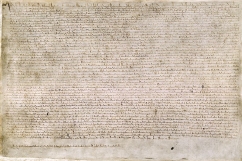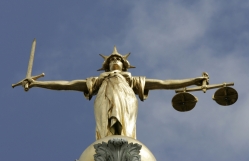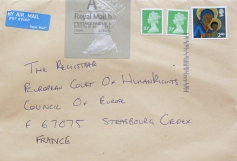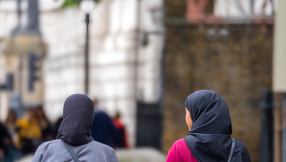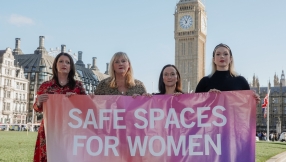Queen Elizabeth will return on Monday to the setting where 800 years ago one of her predecessors accepted the Magna Carta, the English document that put limits on the power of the crown for the first time and laid the foundation for modern freedoms.
The Magna Carta, Latin for "Great Charter", was ratified by King John of England in June 1215, at Runnymede, about 20 miles west of London, after an uprising by his barons. It established certain rights of the English people and placed the monarch under the rule of law.
Not only does it form the bedrock of Britain's constitutional freedoms, it was the basis for the US Bill of Rights, the US Declaration of Independence and the Universal Declaration of Human Rights. Three of its 63 clauses remain on Britain's statute book.
"The relevance of the Magna Carta in the 21st century is that it is the foundation of liberty," said Robert Worcester, chairman of the Magna Carta 800th Committee.
The Queen, who is Patron of the Magna Carta Trust, will attend an official ceremony at Runnymede on Monday to commemorate the anniversary. So will other members of the royal family, including Prince William, who is second in line for the throne.
A new art installation will be opened and the American Bar Association's Magna Carta Memorial, which was erected in 1957, will be re-dedicated.
The Magna Carta came into being during a period of great political upheaval in England. Conflict had erupted among King John, his nobles and the English church.
In essence a peace deal, it was sealed by John on June 19, 1215, following five days of negotiation with his barons. The most famous and significant of its clauses were 39 and 40, which stated that not even the monarch was above the law.
"LAW OF THE LAND"
They read: "No free man shall be seized or imprisoned, or stripped of his rights or possessions, or outlawed or exiled, or deprived of his standing in any way, nor will we proceed with force against him, or send others to do so, except by the lawful judgment of his equals or by the law of the land.
"To no one will we sell, to no one deny or delay right or justice."
Originally known as "the charter of Runnymede", it was declared invalid shortly afterwards by the Pope. Civil war broke out between the barons and John, who has a reputation as one of England's nastiest and cruelest kings, portrayed as the villain in numerous films about legendary outlaw Robin Hood.
It only became known as the Magna Carta two years later, when it was reissued by John's son Henry III. Versions of the charter were then re-released regularly by or on behalf of succeeding English monarchs.
Four original copies of the document, written on a single sheet of parchment about the size of A3 paper, still exist.
An original copy from 1297 sold for more than $21 million eight years ago in New York, when auction house Sotheby's described it as "the most important document in the world".
But historians say the long-term impact of Magna Carta was far from the intention of the barons who forced the document on John, and it was by accident that it became so significant.
Researchers who have carried out a three-year study said it appeared that the church, rather than royal officials, was responsible for its publication and preservation.
"Bizarrely enough, Magna Carta is the product of a situation far closer to that which elsewhere in today's world we might associate with the enemies of modern liberal democracy, with Sharia law, or with those systems in which church and state are indistinguishable," said Professor Nicholas Vincent.
"It is often said to be about democracy, about 'freedom' or liberal values. It says nothing whatsoever of these. But it does assert a principle, due process under law, that is absolutely crucial in distinguishing tyranny from those parts of the world where there is hope of justice and fair trial."










